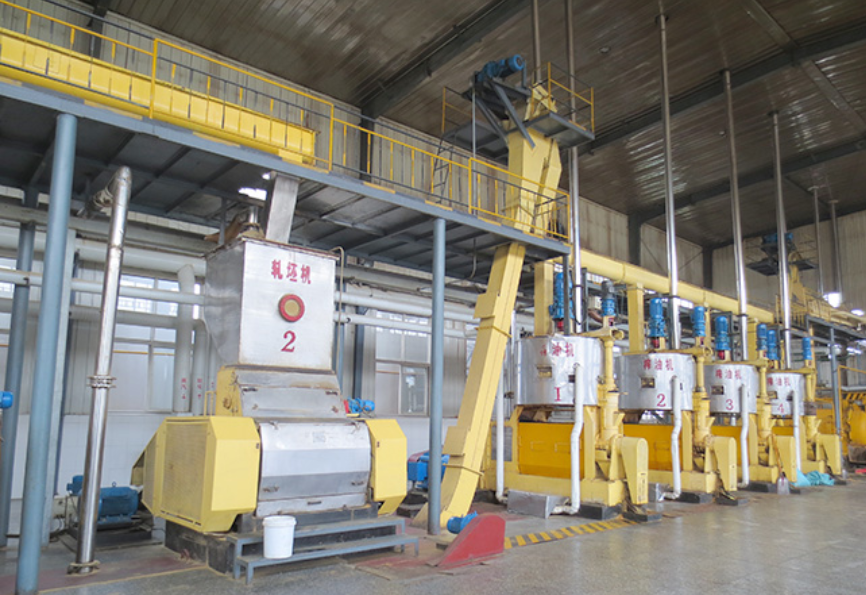Nov . 21, 2024 23:21 Back to list
soybean oil refining machine service
Soybean Oil Refining Machine Service Enhancing Production Quality and Efficiency
In the ever-evolving agricultural and food processing industries, the demand for high-quality edible oils has surged significantly. Among various oils, soybean oil stands out due to its health benefits and vast application in cooking and food processing. To meet this growing demand, the refining process plays a crucial role, and consequently, the importance of efficient soybean oil refining machines and their servicing cannot be overstated.
Understanding Soybean Oil Refining
The refining of soybean oil transforms crude soybean oil, which contains impurities and undesirable elements, into a high-quality product suitable for consumption. This process typically involves several stages degumming, neutralization, bleaching, and deodorization. Each stage is critical for removing contaminants, ensuring the oil meets safety standards, and enhancing its flavor, color, and shelf life.
The Role of Soybean Oil Refining Machines
Soybean oil refining machines are specialized equipment designed to carry out the various stages of the refining process. These machines must be efficient, durable, and easy to operate. They can be found in small-scale operations and large industrial settings alike, adapting to different production needs. Key components of these machines include
1. Degumming Units Remove phospholipids and other impurities. 2. Neutralizers Eliminate free fatty acids by neutralizing them with lye or other chemicals. 3. Bleaching Systems Remove pigments and oxidation products that affect the oil's color. 4. Deodorization Units Employ steam to remove volatile compounds that contribute to undesirable odors and tastes.
The efficiency and reliability of these machines are essential not only for maximizing output but also for maintaining the quality of the final product.
Importance of Machine Service and Maintenance
Like any piece of industrial equipment, soybean oil refining machines need regular maintenance and servicing to function optimally. Neglecting these requirements can lead to reduced efficiency, increased waste, and higher operational costs. Here are several reasons why regular servicing is critical
soybean oil refining machine service

1. Preventive Maintenance Scheduled maintenance can identify potential issues before they escalate into more significant problems, ensuring uninterrupted production.
2. Optimization of Operations Regular service helps calibrate machines to operate at peak efficiency, thereby maximizing output and reducing energy consumption.
3. Longevity of Equipment Proper maintenance extends the lifespan of the machinery, safeguarding the initial investment.
4. Food Safety Compliance Adhering to service protocols ensures that all equipment is sanitized and operated following health and safety standards, which is crucial in the food industry.
5. Cost Reduction By preventing breakdowns and inefficient operations, companies can reduce repair costs and avoid lost production time.
Choosing a Reliable Service Provider
Selecting the right service provider for soybean oil refining machine maintenance is essential. Look for companies that specialize in food processing equipment, particularly those with a proven track record in the oil refining sector. A good provider should offer comprehensive services, including
- Emergency Repairs Quick response teams for unexpected breakdowns. - Routine Inspections and Maintenance Regular checks to ensure all machines are functioning optimally. - Replacement Parts Supply Access to genuine parts to ensure reliability and performance. - Expert Advice Knowledgeable technicians who can provide operational efficiency tips and upgrades.
In conclusion, as the global demand for soybean oil continues to rise, ensuring the efficiency and reliability of soybean oil refining machines becomes increasingly important. Regular servicing not only maintains the quality and safety of the final product but also enhances production efficiency and extends the lifespan of the machinery involved. By choosing a reputable service provider and committing to a rigorous maintenance schedule, producers can achieve operational excellence in the competitive edible oil market.
-
HP290 First Press Oil Expeller Machinery: Efficient Oil Extraction
NewsAug.02,2025
-
Top Food Oil Refined Unit Companies w/ GPT-4 Turbo Tech
NewsAug.01,2025
-
Premium Black Seed Oil Expeller - High Efficiency Cold Press Oil Machine
NewsJul.31,2025
-
Oil Processing Equipment - High-Efficiency Flaking Machine
NewsJul.25,2025
-
High-Efficiency Peanut Oil Refined Machine for Quality Oil Production Leading Exporters & Companies
NewsJul.08,2025
-
High Efficiency Sunflower Seed Oil Press – Leading Cooking Oil Press Machine Factories & Suppliers
NewsJul.08,2025
